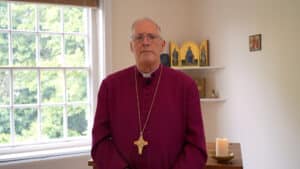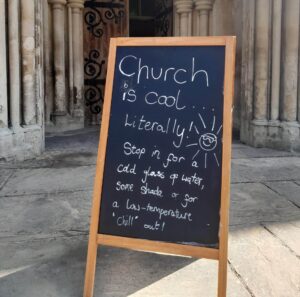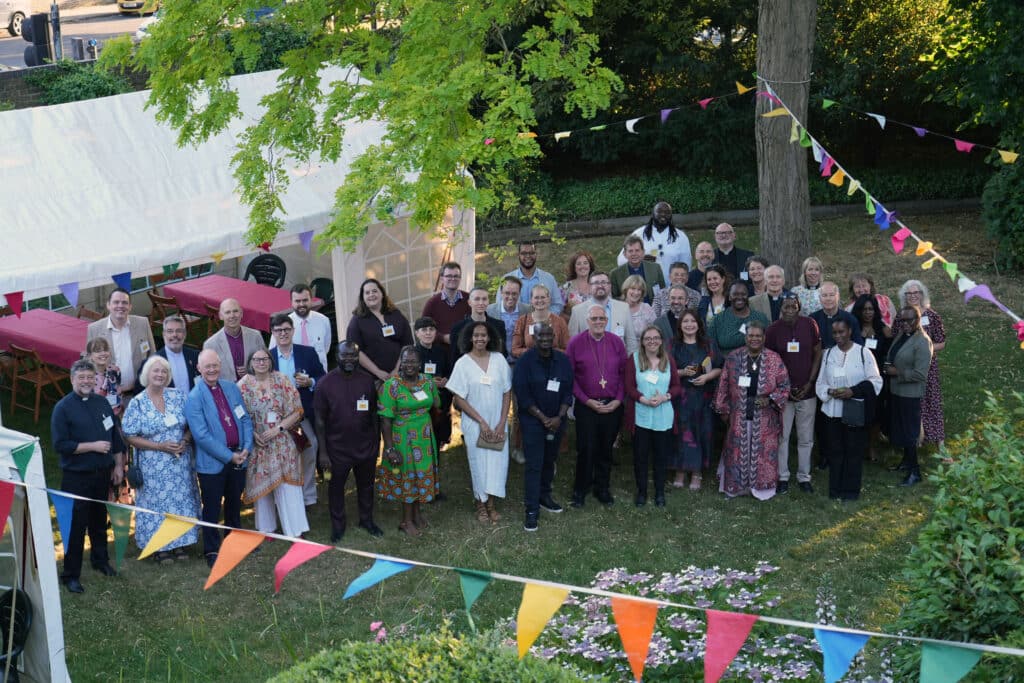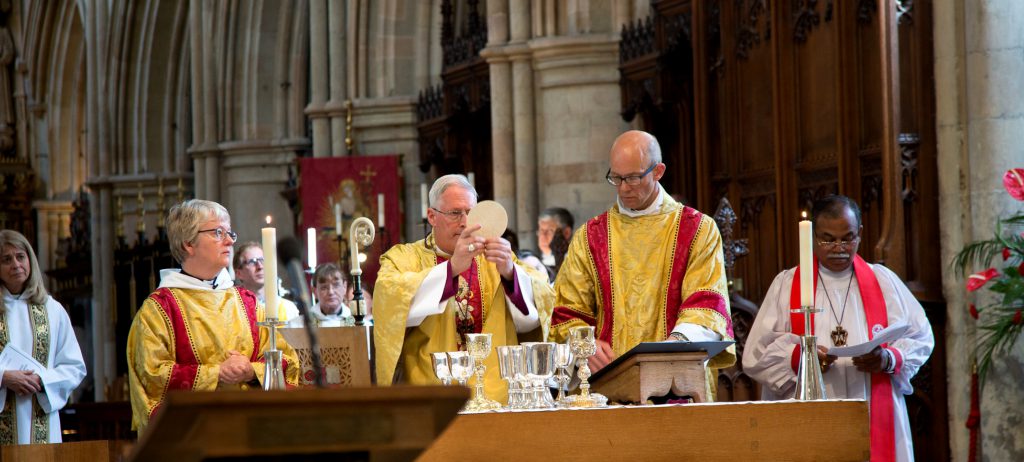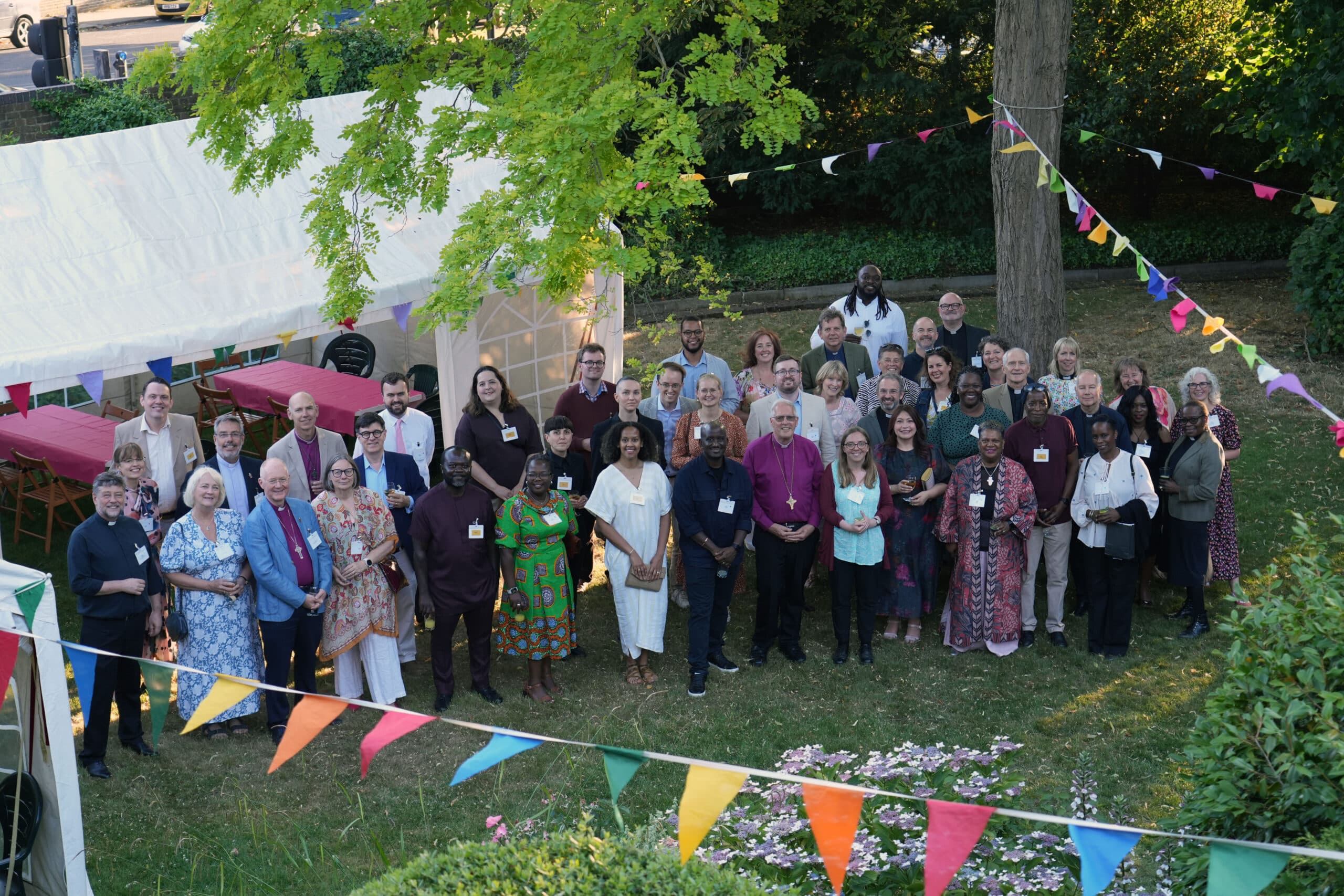When I first felt a call to ordained ministry I was sufficiently new to the church that I didn’t know that, as a woman, I could not actually be ordained. I just knew somewhere deep in myself that this was what I was meant to do.
My journey to ordination was rather a long one. During the 20 years between that first sense of call and ordination I was involved in the church as a layperson in every possible way. I could have trained as a Reader as I was sure that the core of my ministry would always be in the work that I was, by this stage, paid to do and in the voluntary work that I undertook. But I knew I was called to be a priest.
When I was eventually ordained in some ways not much changed. I was still in the same job and the same house but now I was preaching regularly and learning to take services and to do pastoral work when I wasn’t at my full-time paid employment. I missed almost all of my post-ordination training because the Diocese (not Southwark!) couldn’t get its head around the fact that I did work full-time and some evenings. I’ve never been part of a cell group or much a part of the Deanery (they held one meeting a year in the evenings which NSMs could go to with the Readers).
On the periphery
It is things like this that I know make so many who, like me, are not paid for their ministry in the parish feel as if they are not wanted or valued and sometimes they feel frustrated and alone.
I am not what some people call very “clubbable” and so standing somewhere on the periphery has never especially bothered me. What has always bothered me, and continues to do so, is when people do not recognise the other bits of my ministry – my day job – as part of my priestly calling.
I have always worked for the Church or Church-related organisations and believed that what I do there is what God has called me to do. Yet, some people have always seemed to think that this is the “second class” way to be a priest as I don’t focus my attention solely on the parish. It is emphatically not the case. God calls us all to different ministries, lay or ordained, and it is important that we value equally the ministries to which we are each called.
Recently the church has considered NSM ministry many times and has moved to calling those whose ordained ministry is not paid for by the church Self-Supporting Ministers (SSMs).
This move to calling clergy SSMs rather than NSMs is important because we are no longer referring to people by what they are not but by what they do: they support themselves in their church-related ministry.
In the last few months I have been privileged to be made a Residentiary Canon at Southwark Cathedral, combining this with my role across the Diocese as Director of Discipleship, Lay Ministry and Continuing Ministerial Development. Southwark has never before had an SSM as a Residentiary Canon and we have spent a good deal of time working out what that actually means. How does collegiality work across the clergy chapter of the Dean and the Residentiary Canons when one is an SSM? How can I play as full a part as the others when I live much further away? (I live in my own home further from the Cathedral than the other Canons and have to rely on public transport.)
We have spent time working on this and coming up with an arrangement that recognises my different circumstances but helps me to play a full part. We have all had to compromise but now we have a work agreement which we hope will work for us all.
There are a number of other Cathedrals with an SSM Residentiary Canon but this is a first for Southwark and it is a real shift in thinking and intent. Here is an obvious recognition of the importance of SSM ministry and the value of the experiences that we can bring. The way in which training is now organised means that the move between SSM and stipendiary ministry is much easier and the possibilities for all in ministry are some much more imaginative and exciting. I’m delighted to be part of it.






